Students of the IMEM program visited Qingdao in June 2019, for a tremendously rewarding immersion class, gaining deepened insights into China’s industry and technological advancements. Led by the Program Director Prof. Wei Zhang,Prof. Ye Cheng and Ms. Haitao Wang, IMEM students had the great opportunity to visit and learn from world-class enterprises in Qingdao. Companies visited include (in chronological order): TGOOD, Jiaodong Airport Economic Demonstration Zone, Shaohaihui, Haier, Aucma, CRRC Qingdao Sifang and Tsingtao Brewery Museum. The company visits provided valuable experiences, insights and information in their respective product ecosystems, management models, industry upgrade plans, and prospects. Senior management of these organizations also engaged in dialogue and Q&A sessions, to further our understanding in the companies, their industries, and markets.
TGOOD
On June 17th, IMEM visited one of the world’s leading company in power generation technologies—TGOOD. TGOOD’s main business involves the production of power system equipment, including transformers, power distribution equipment, and switchgear. TGOOD also offers specialized system solutions including railway, oil & gas, and coal mines. Its subsidiary TELD is one of the largest providers in EV charging services, with 221,995 terminals in 318 cities, providing services through smartphone APP and cloud platforms. TELD’s existing charging technology can fulfill the demands of charging unmanned pure EV vehicles.
The IMEM students received a warm welcome from the company managements, who helped the students get a glimpse in the company's history and prospective. IMEM received a very warm welcome from TGOOD management, and learned about the company’s history, vision and prospects. This company has impressed the students at how dedicated they are in entering a new energy era and the pioneering work which they are willing to undertake and invest in.
The IMEM team were lucky enough to dialogue with the president of TGOOD, Mr. Qu, who is an engineer and alumni of Tsinghua. Mr. Qu discussed the R&D process, domestic and oversea marketing strategies, production management and prospects of TGOOD with the students and answered their questions. This visit and dialogue not only gave the students a good insight into TGOOD and China’s new energy industry but also brought them practical and brand-new ideas about management.
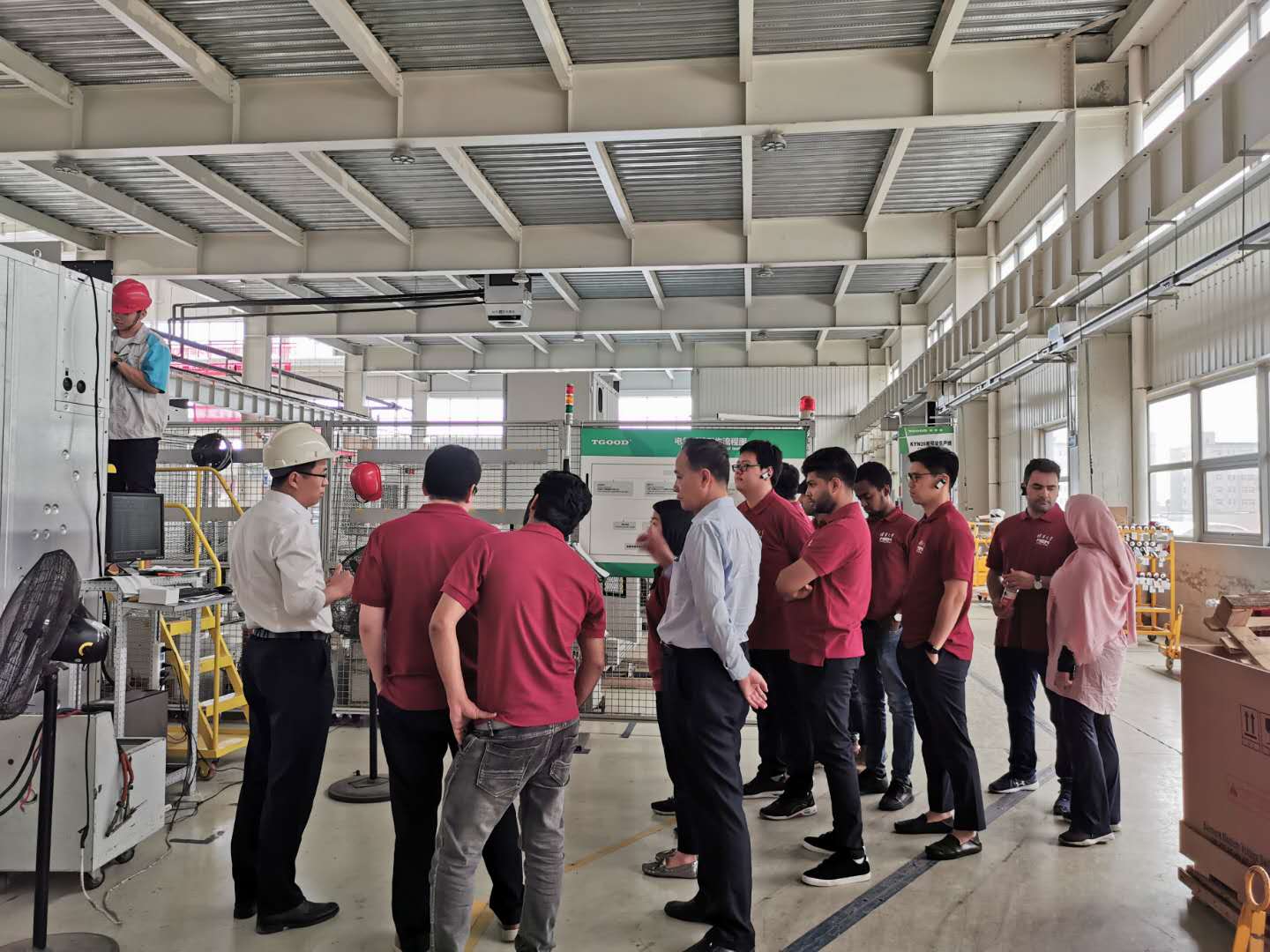


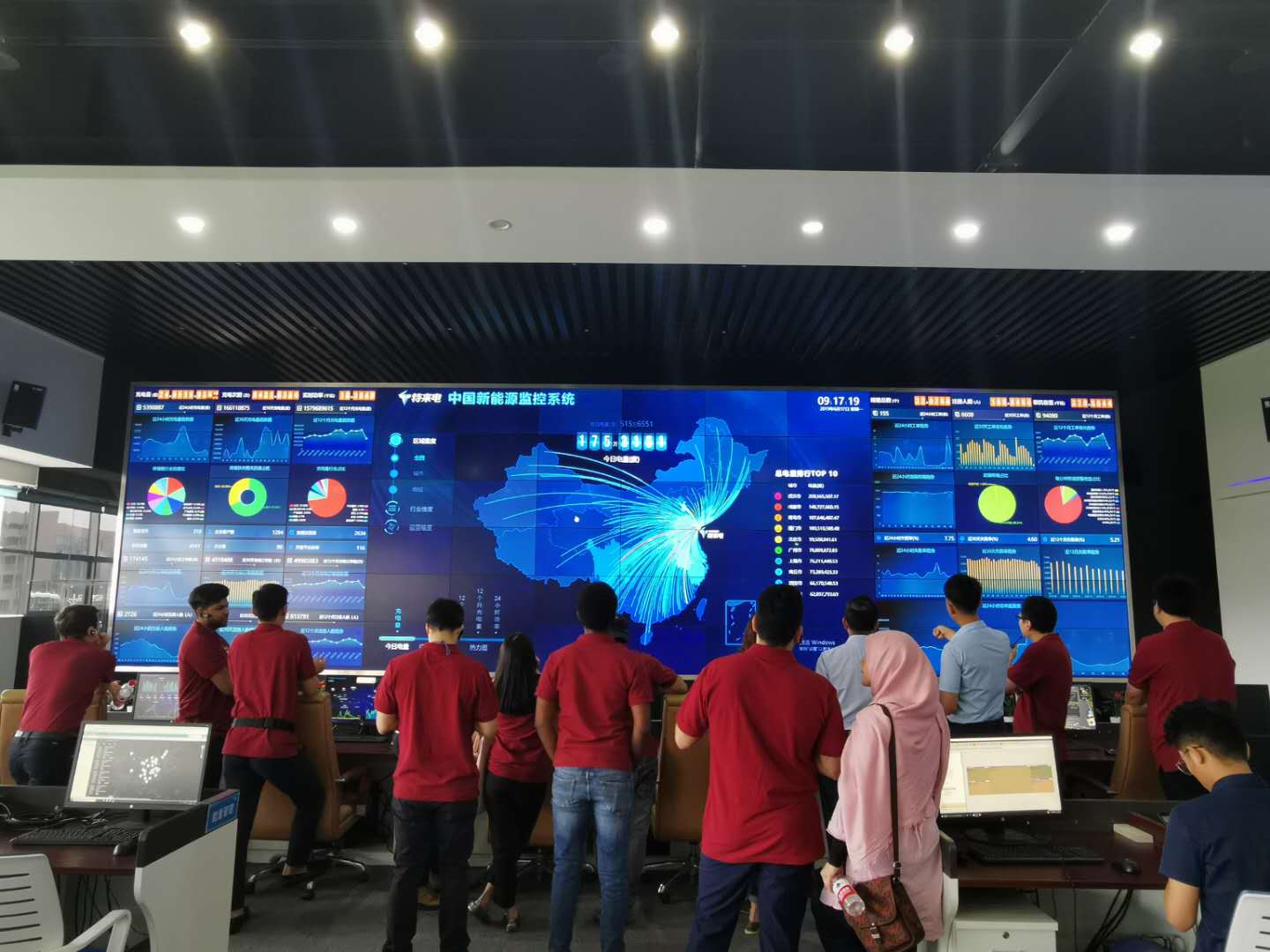
Jiaodong Airport Economic Demonstration Zone
In the afternoon of June 17th, the IMEM students continued with a visit to the Planning Hall of Airport Economics Demonstration Zone.
The upcoming airport is a national level airport economics demonstration zone, and it will serve as a transportation hub, an industrial and a commercial center. The current Qingdao Liuting International Airport operates at over-capacity and is unable to keep up the demands arose from economic development. This visit has been insightful as the IMEM students got a glimpse on how an airport is planned and the complexities and challenges of estimating the demand and trend.
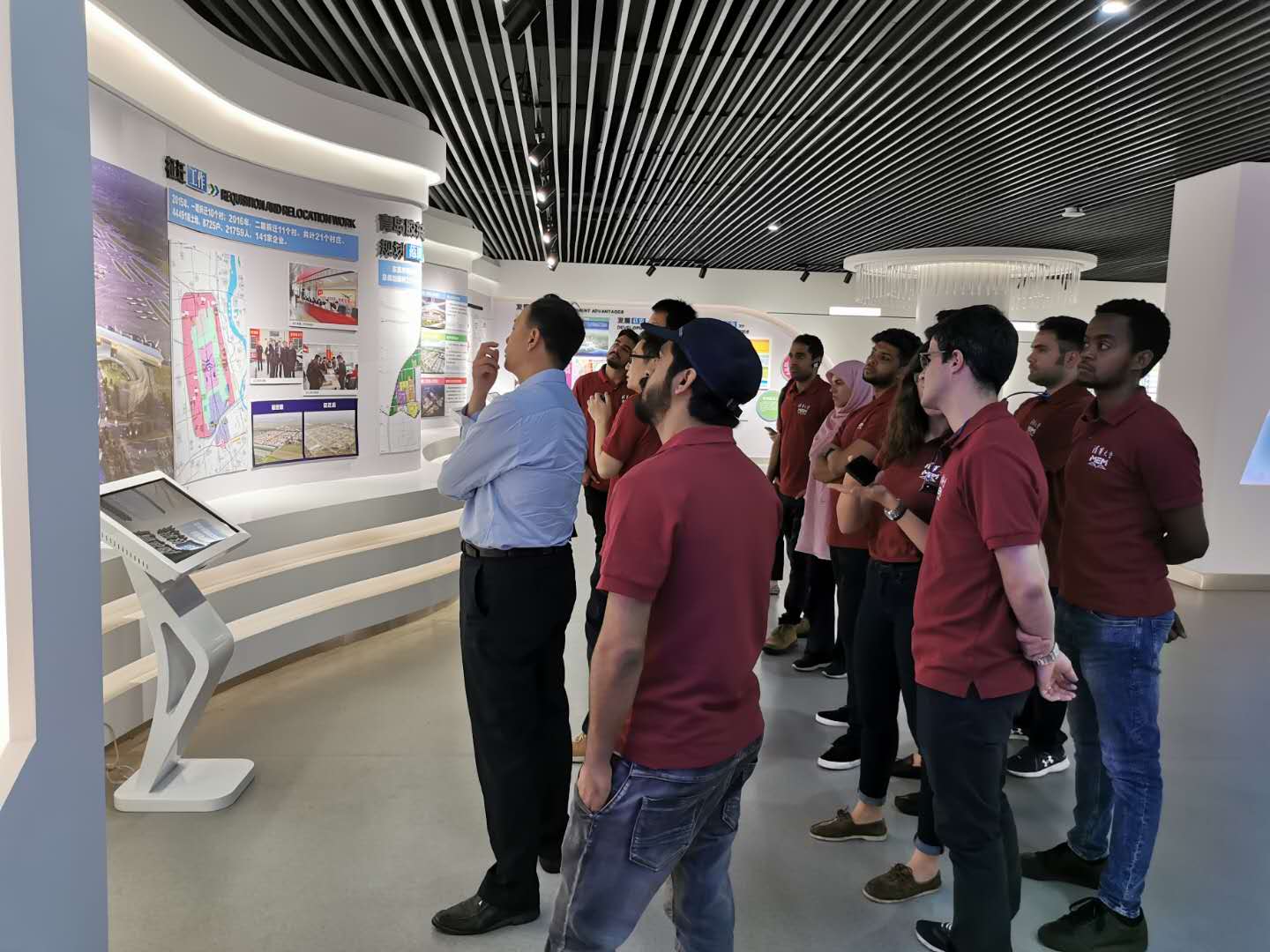
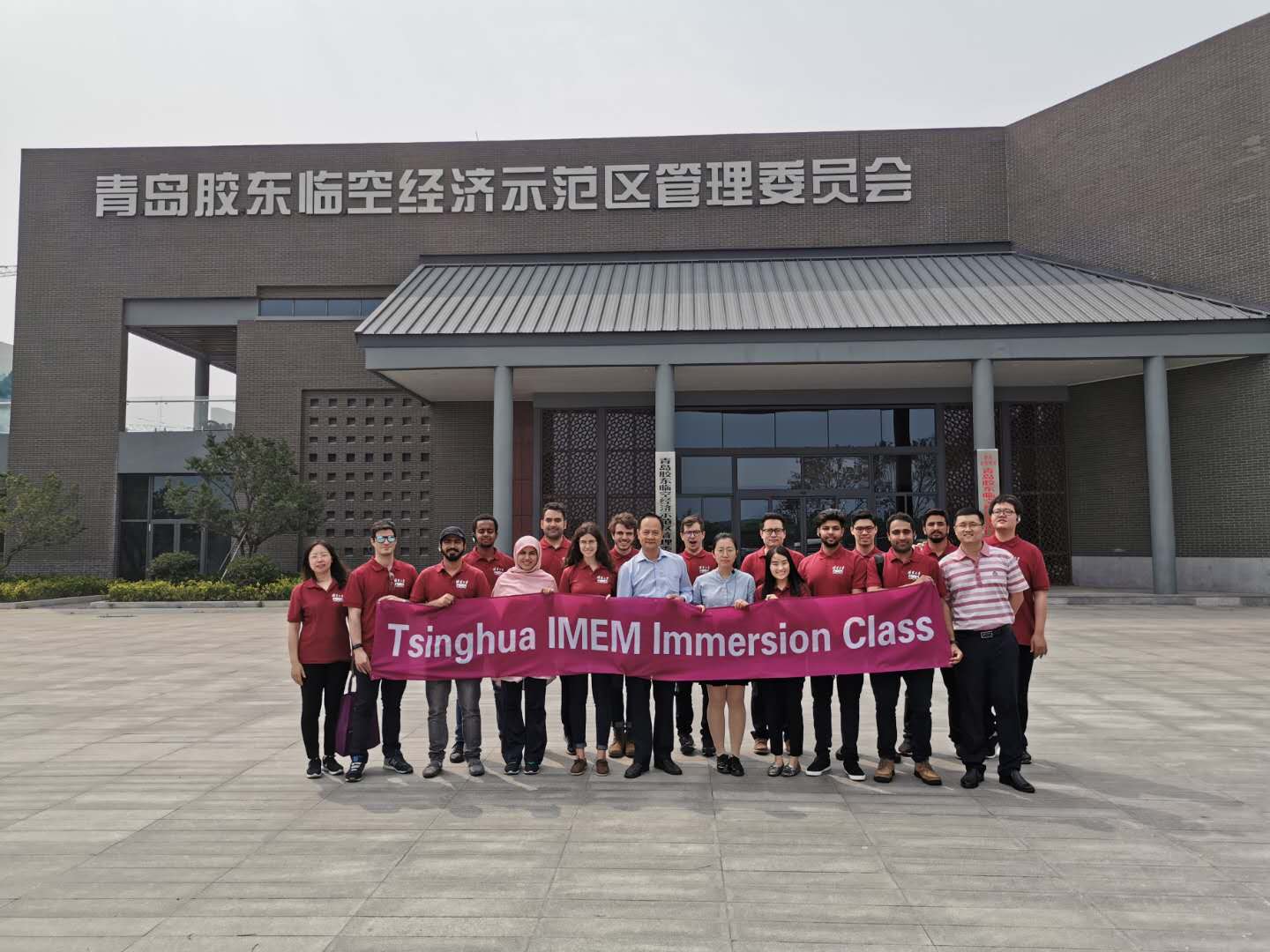
Shaohaihui
Shaohaihui, formerly Haier Home, has become a smart home incubator / entrepreneurial platform. Most of the companies of the platform are making transitions from traditional home furnishing to smart home solutions. These companies focus on the implementation of new technologies in highly market-oriented products. After the visit, the students had a chance to communicate with the president of Shaohaihui Mr. Xie, and he answered questions about the developing and running model of Shaohaihui in detail.
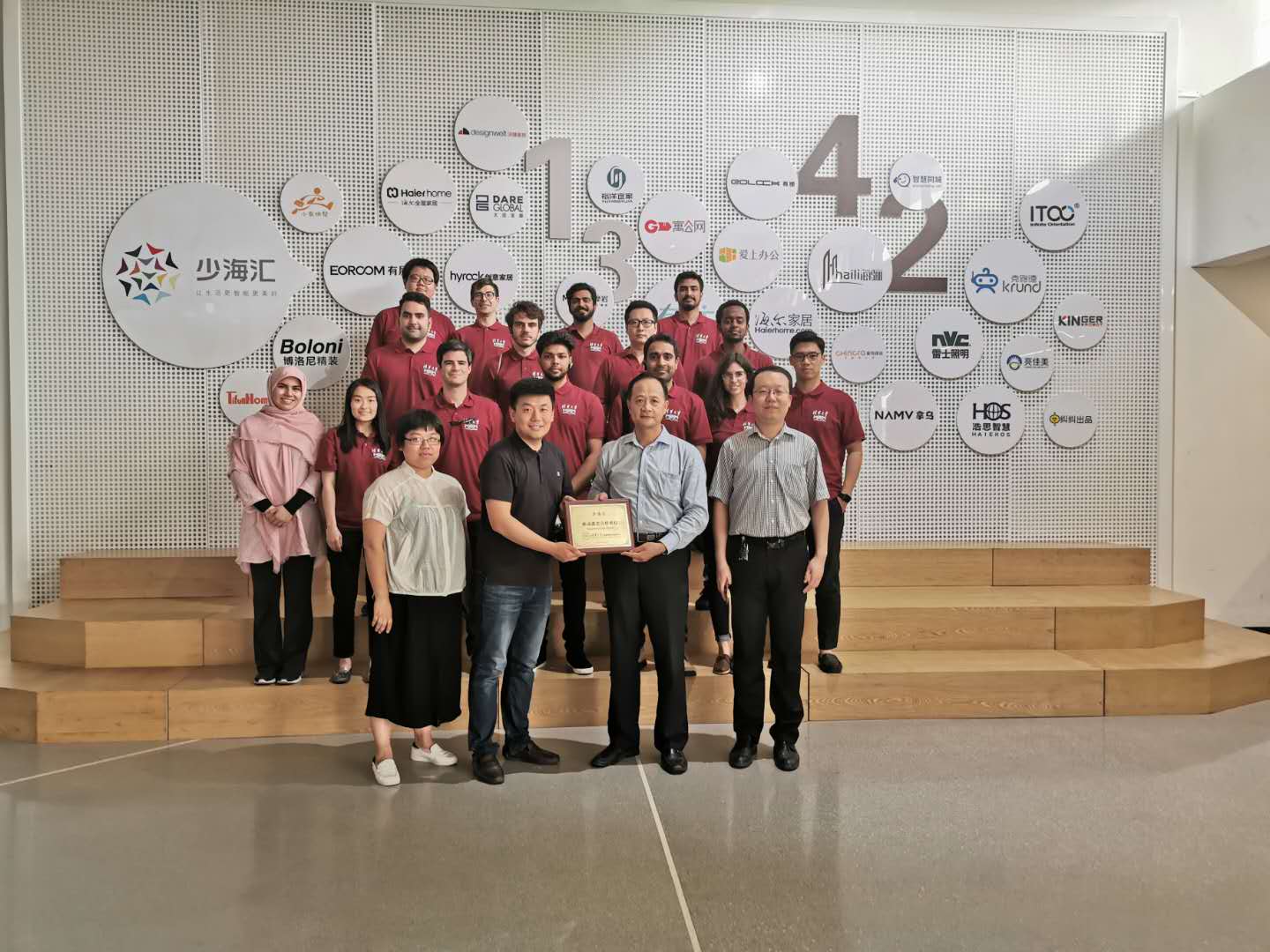
Haier
Haier is one of the largest home appliances manufactures in China and the world. Haier has production facilities overseas and acquired local brands to sell products both under its own brand and as an OEM. Casarte is one of Haier’s premium brand, targeting high-end consumer markets in domestic and international markets. Casarte production lines are highly automated. While reducing procedures involving workers, it also provides industrial big data, which can be used in improving productivity and enhancing quality control. Another remarkable part of Haier is its smart vertical storage system. Through continuous iterations, the current smart warehouse can operate without human intervention from receiving to shipping. The operation cost of the smart warehouse is far lower than that of human labor of equivalent capacity.
The IMEM students have been impressed by Haier, a global industry leader with excellent international operational management, a company with strong company values -focusing on quality, and giving a lot of room for innovation for their employees. IMEM students were also particularly impressed at their dedication and recognition towards people, proven by the implementation of a Haier University that can help employees develop technical and business skills.
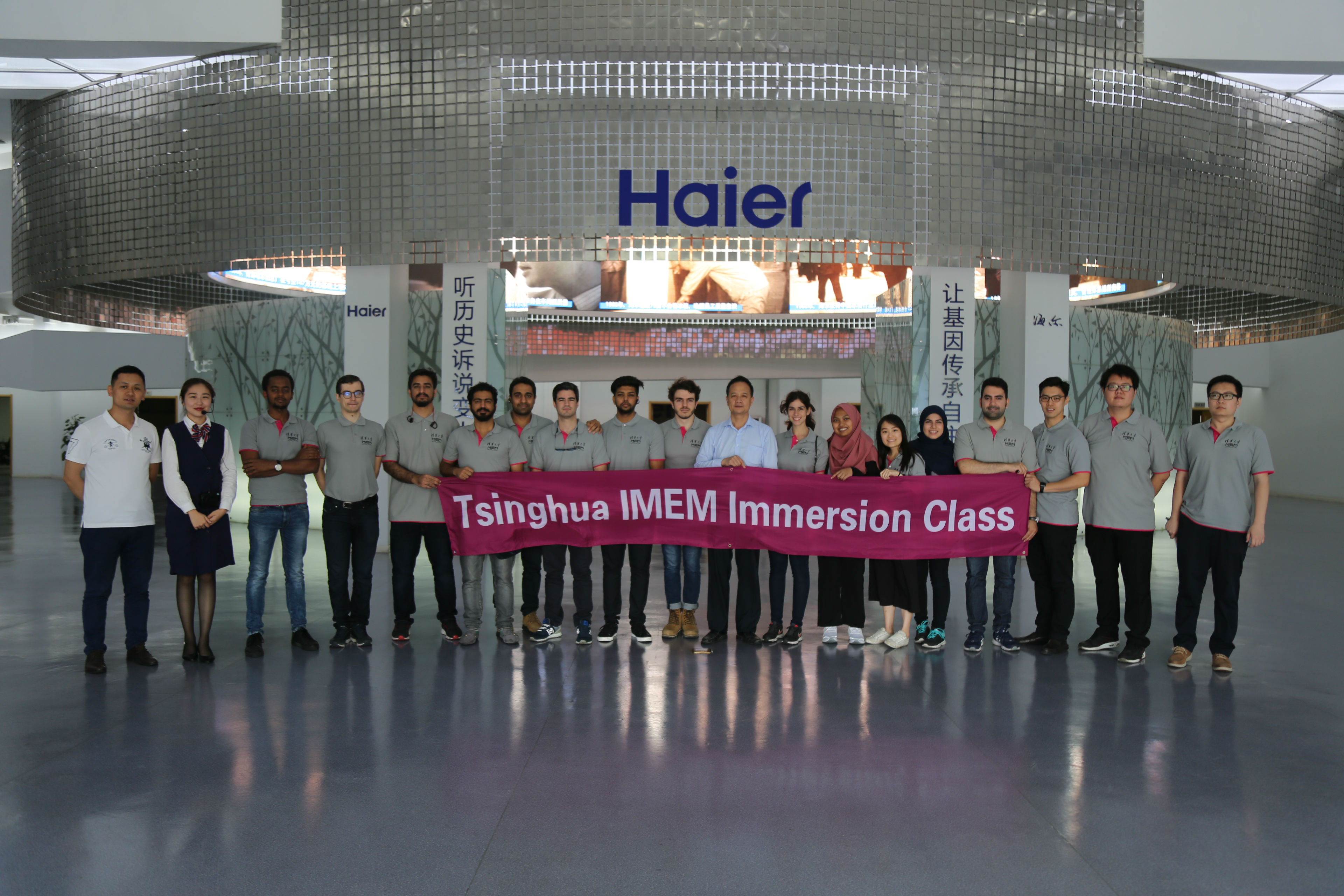
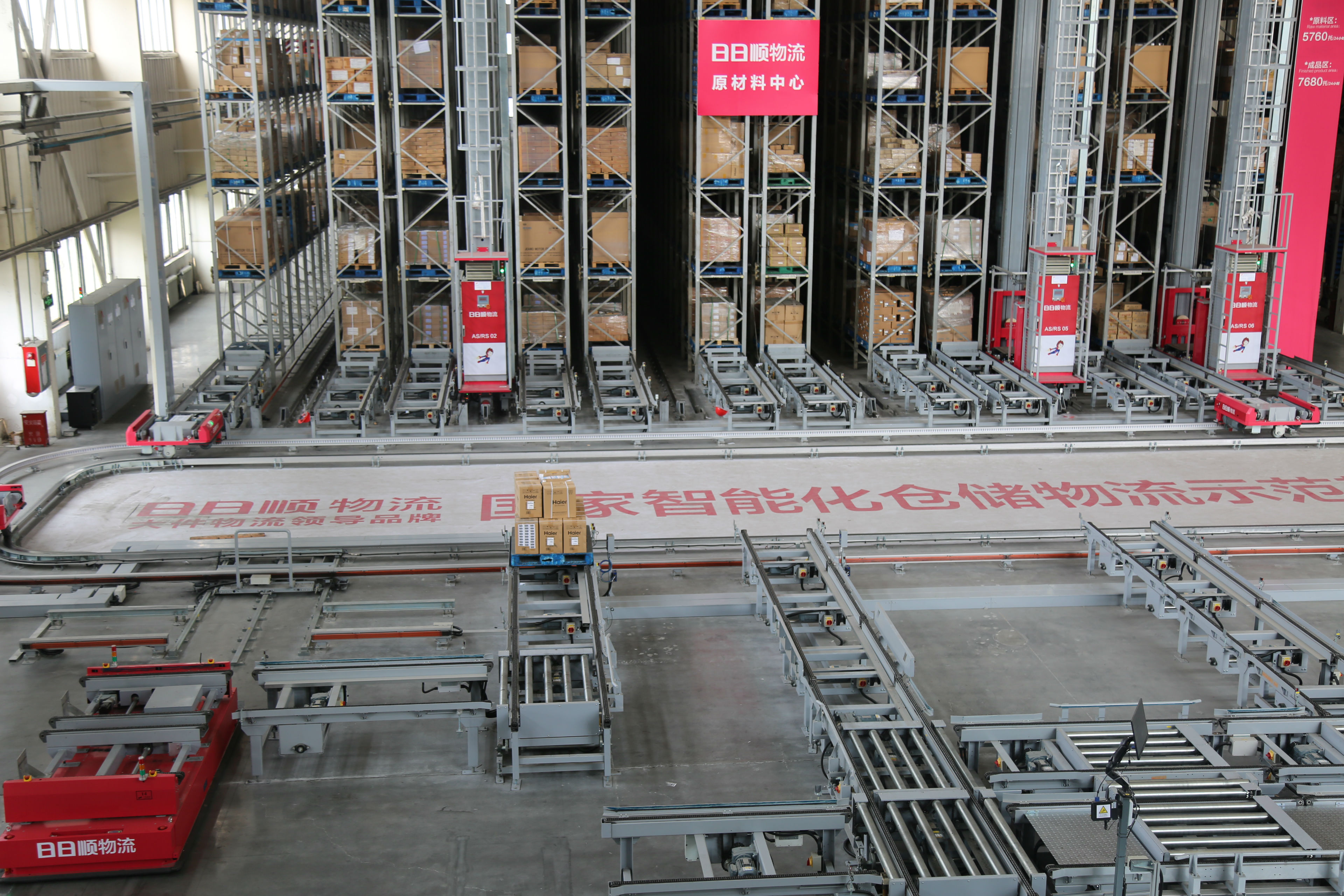
Aucma
Aucma is one of the largest refrigeration equipment suppliers. Its main businesses include home appliances, commercial refrigeration equipment and cold chain technology. It has its own brand and OEM businesses. Aucma has smart production facilities, engaging in small batch mixed production of 8 series of 208 products according to customization requirements from buyers. In addition to commercial refrigeration technology, Aucma also has medical grade refrigeration product lines and has developed ARKTEK, a vaccine transport container for areas in hot climate and without electricity. This is an exemplary product for an international company in both technological advancement and making contributions to social welfare.
Aucma’s core business is in commercial refrigeration products. The technology implemented and innovative solutions distinguishes Aucma from its competitors. There are several themes in the new products of Aucma, including 1) reducing cold air loss during opening and closing of the fridge through airflow control technology in order to conserve energy and protect the environment, 2) smart products with added functions, such as using built-in cameras to identify caloric values and expiration dates of food, and 3) connect with online shopping (home users) and advertisements (businesses) to increase user conversion rates. For example, the new Aucma commercial fridge can change air-flow when its door is opened, in order to reduce energy loss. Automatic vending fridge can allow the buyer to scan a QR code to open the fridge, and use internal camera to automatically track what was bought and charge accordingly. At the same time, the fridge can use screens and projectors to advertise products.
During the Q&A session, senior managers answered the students’ questions in concrete details, including the areas of product development cycle and planning, prospects of the smart factory from its investment and development cost, production flexibility and returns, how the company manages market cycle, develops international market, and builds its brand. This session helped the students understand the various aspects of a manufacturing company. The lessons are tremendously valuable.
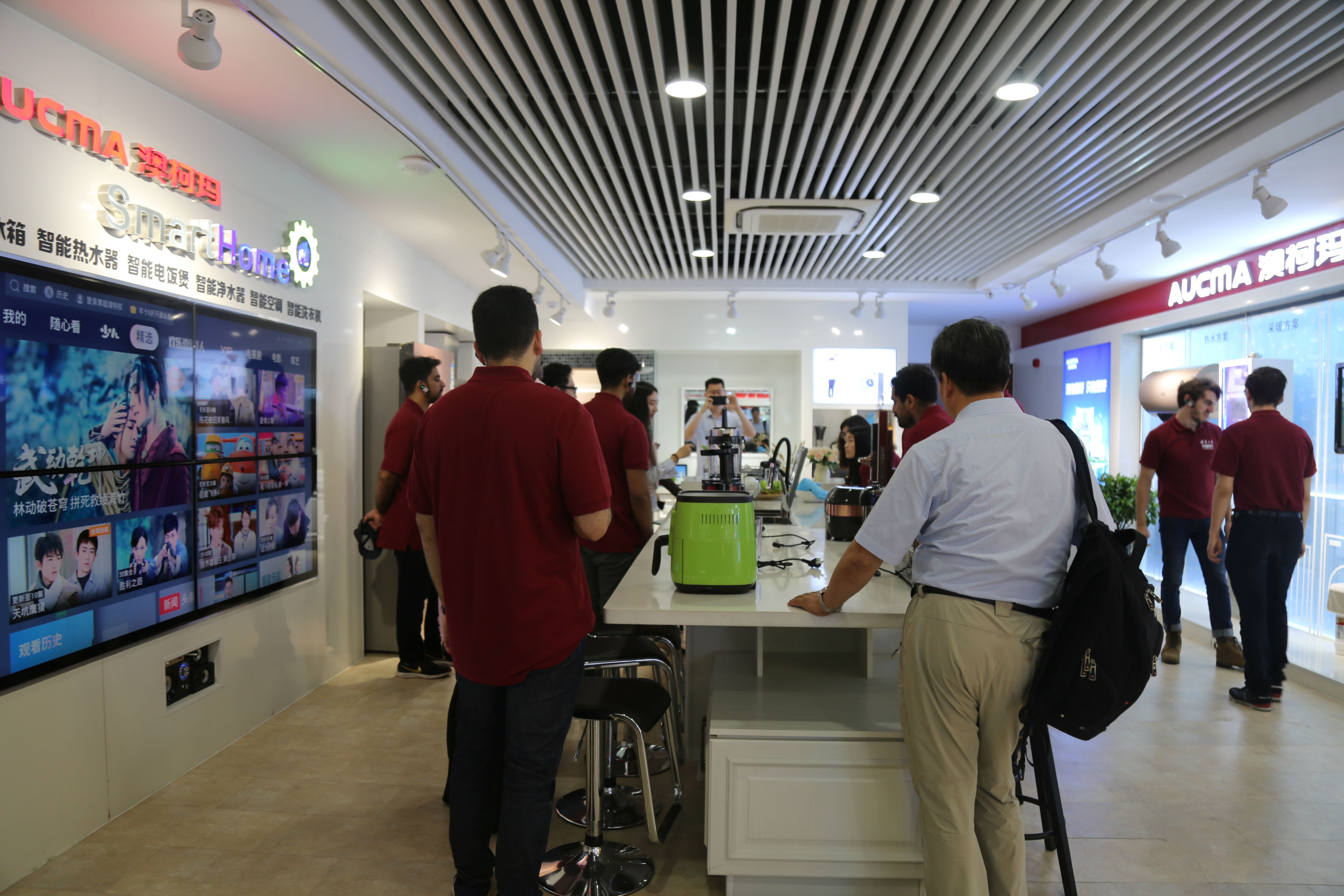



CRRC QINGDAO SIFANG CO., LTD
In the morning of the last day of Qingdao immersion class, IMEM team visited CRRC Qingdao Sifang CO., LTD. The company mainly produces high-speed trains and urban rail metro vehicles. This time, the students mainly visited the exhibition hall, the National Laboratory of High-speed Train System Integration, the EMU and car body workshop of the general assembly plant, the production lines of high-speed trains and subways sold at home and abroad. At the same time, the students also exchanged their views with Mr. Zhao Jinfeng, the Deputy Director of CRRC Sifang Marketing Department and other manager of the Marketing Department and Overseas Business Department on the following topics: 1) Intelligent workshop, information construction, and the application of lean manufacturing and intelligent manufacturing theory in production management; 2) international market outlook and marketing strategy.
During this visit, IMEM students were able to understand how did China develop from traditional steam locomotives to diesel locomotives and to high-speed trains.
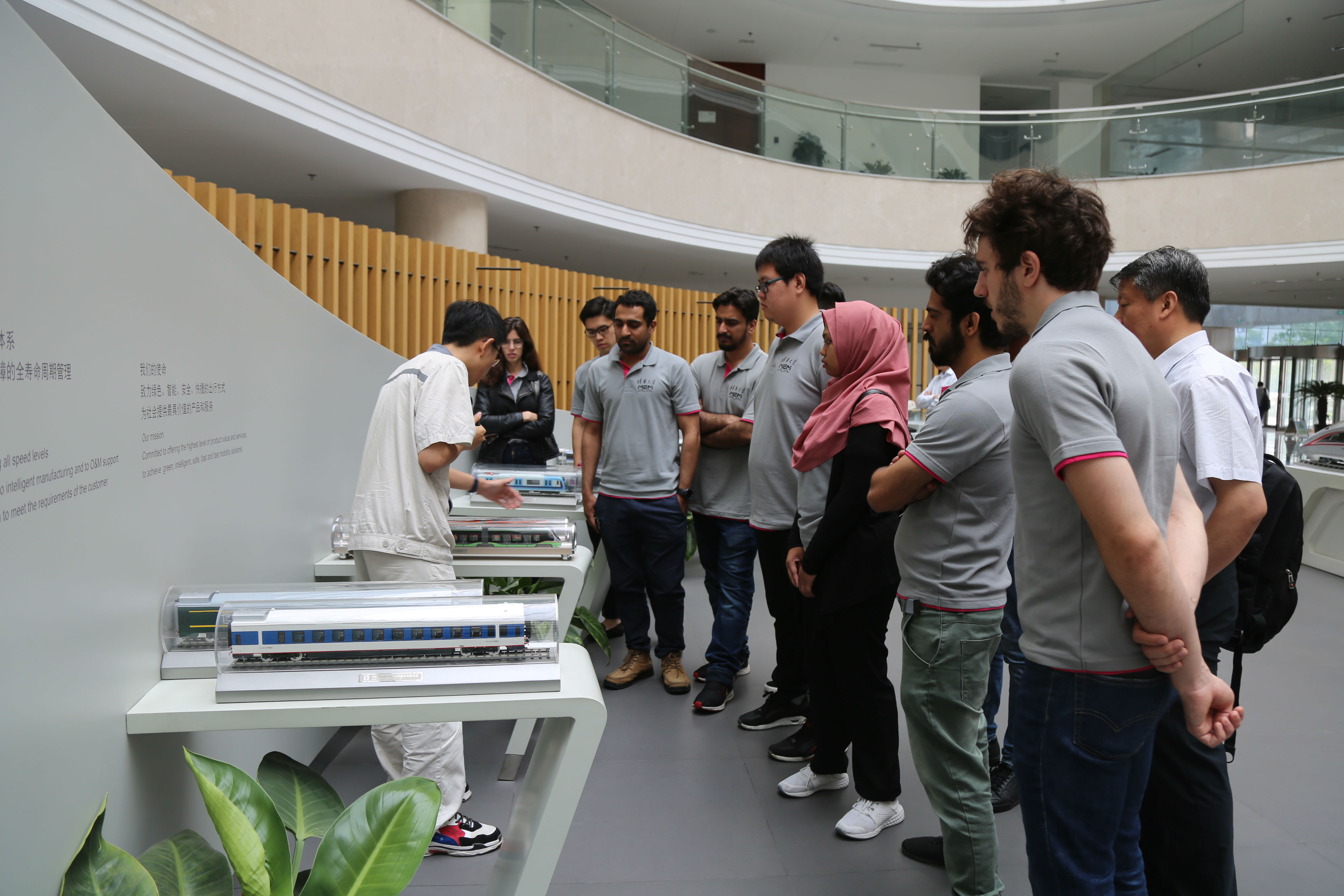
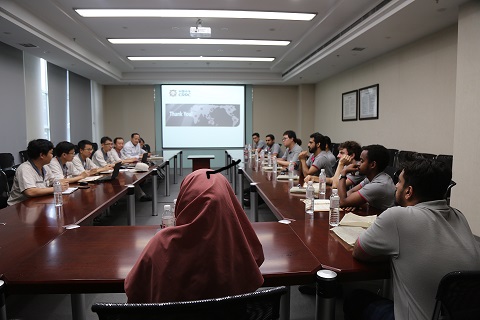

Tsingtao Brewery Museum
Tsingtao Beer is a world-renowned brand and one of the largest beer producers in China. Its unique history gives Tsingtao beer a strong competitive advantage in branding. On June 20th, the IMEM team got a half day immersion experience in the museum of the global beer manufacturing enterprise from Tsingtao, known around the world for its quality beers and a staple of Chinese quality products abroad. The IMEM team got the chance to see how beer manufacturing works, what the ingredients are used in the beer, the history of the beer and the city, and how they are interconnected and a combination of Chinese and German collaboration.
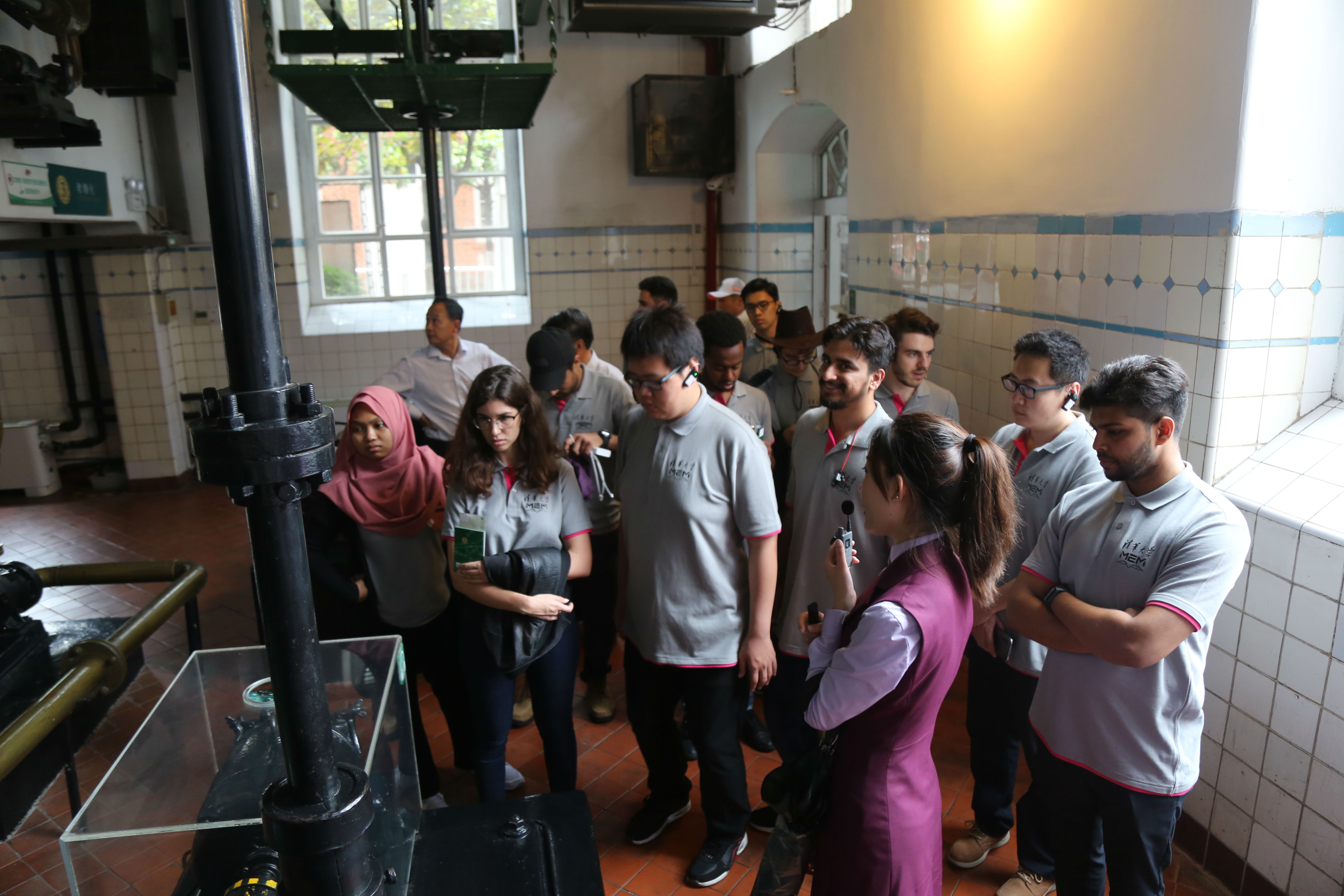

City and Industries Impressions
Qingdao is a rapidly growing tier-2 coastal city. It is well managed by the municipal government, with clean streets and orderly traffic. The city benefited from Olympics and SCO summit not only in terms of infrastructure investments, but also in developing the city’s culture and prospects.
The companies visited are mostly traditional manufacturers, which are in the process of adopting new trends in technology. One challenge common to these companies is how to change from an industry “follower” to an industry “leader”. The sense “leader” here does not refer to mere sales volumes, but rather in revolutionary R&D, the ability to change the direction of an entire industry and create high value-added revenue sources. Being a technological follower is not necessarily “bad”, in that being close to the implementation stage of technology means less unnecessary risk, more predictable returns, and cost-effective revenue generation. However, it also means the company is more prone to market cycles, competition from very similar products, and difficulties in branding.
Another aspect I have noted, from an English perspective, is that all companies visited could have benefited from better copywriting and translation in English. These two are not necessarily separate. Many communication materials shown inconsistent quality which creates confusions to the audience. For most companies, it is not of vital concern if their promotional material in English/French/any other language is not well translated, since the company only need to prove to the customer that their products work and make low down-stream profits. However, if the company wants to increase value creation, creating effective communication materials is of vital importance, since their major non-manufacturing-only competitions (such as their OEM partners) from around the world do not make the same mistakes. It is not a source of direct revenue generation, but a means to becoming a global brand. Similar companies from Japan and Korea have all gone through these phases.
——IMEM 2017:HAN, ALEX BOCHAO
In conclusion, our main learning was that Chinese companies are looking for overseas expansion and that they are already globally competitive in terms of technology and that their main challenge is branding. At the same time, I appreciate that all the managers we met were open about their shortcomings such as the lack of tradition and expertise in foreign markets and the difficulty of establishing global partnerships. They are trying to overcome these by forming global partnerships with overseas companies and exploring fostering overseas talent into management roles. I have to say that I feel that China is already a global leader in many fields and will continue to improve and lead in others. I feel that Chinese people are willing to work hard for their nation’s dream and they are willing to make the sacrifices that are required to win on the global stage and that there is a common desire that in them lies a passionate Dragon’s Heart waiting to show itself to the world and drive innovation and global wellbeing.
——IMEM 2018:NASULEA, MIHAI BOGDAN
Writer: 2017 IMEM student: HAN, ALEX BOCHAO,2018 IMEM students: NASULEA, MIHAI BOGDAN, G/TSADIK, NAHOM GEBREMICHAEL, KHOSO, ABDUL QADEER,
Pictures: HAITAO WANG, 2018 IMEM student: KHOSO, ABDUL QADEER